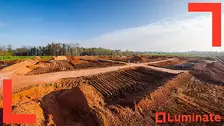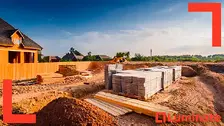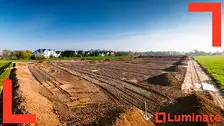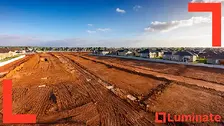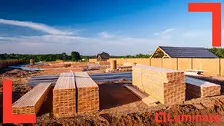Property Development Timeline in New Zealand: Planning Your Project Schedule
 By
Trent Bradley
·
9 minute read
By
Trent Bradley
·
9 minute read
.png?width=1280&height=720&name=Featured%20images%20(14).png)
Understanding realistic timeframes is crucial for successful property development in New Zealand. Project timelines directly impact financing costs, market positioning, and profitability. This comprehensive guide explores typical development timelines across different project types while highlighting factors that can accelerate or delay progress through New Zealand's complex development environment.
Table of Contents
- Typical Development Timeframes by Project Type
- Phase-by-Phase Timeline Breakdown
- Regional Timeline Variations
- Factors That Accelerate Development Timelines
- Common Causes of Timeline Delays
- Timeline Management Strategies
- Impact of Timeline Variations on Project Economics
- Timeline Optimisation Through Project Staging
- Technology and Timeline Enhancement
- Working with Timeline-Focused Finance Partners
- Frequently Asked Questions
Key Takeaways
- Simple two-lot subdivisions complete in 8-15 months while complex multi-lot subdivisions require 18-36 months, with master-planned developments extending to 3-5 years across multiple stages
- Consent processing represents the most variable timeline component, ranging from 6 months for straightforward applications to 24+ months for complex projects requiring hearings or appeals
- Apartment and high-density developments typically span 3-5 years from concept to completion, while townhouse projects require 24-42 months due to complex design and intensive community consultation
- Auckland experiences longest consent processing times (12-24 months) due to volume pressures, while provincial councils often process faster but may lack specialist expertise for complex developments
- Timeline delays cost significantly through carrying costs—a six-month delay on a $2 million development adds $60,000-$100,000 in interest, insurance, rates, and holding expenses
- Pre-application council consultation, comprehensive application preparation, and experienced professional teams can significantly reduce processing times and prevent costly revision delays
- Strategic project staging enables earlier revenue generation from completed phases, improves market responsiveness between stages, and often achieves faster individual consent processing than comprehensive approvals
- Common delay causes include incomplete applications, community opposition requiring hearings, unexpected site conditions, seasonal construction constraints, and material/labour shortages during high-activity periods
Typical Development Timeframes by Project Type
Development timelines vary significantly depending on project complexity, location, and regulatory requirements. Understanding baseline timeframes for different development types helps establish realistic expectations and effective project planning.
Simple Subdivision Projects: Basic two-lot subdivisions or minor boundary adjustments typically complete within 8-15 months from initial planning to title creation. This includes consent processing (4-8 months), infrastructure work where required (2-4 months), and LINZ title creation (2-3 months).
Complex Subdivision Developments: Multi-lot subdivisions requiring significant infrastructure investment typically span 18-36 months. Master-planned subdivisions with extensive infrastructure and staged development may extend to 3-5 years, particularly where multiple development stages are involved.
Townhouse and Medium-Density Projects: Townhouse developments typically require 24-42 months from concept to completion. This includes extended design and consenting periods (8-18 months) due to architectural complexity and often intensive community consultation requirements.
Apartment and High-Density Developments: Multi-storey apartment projects typically span 3-5 years, with some complex developments extending beyond this timeframe. Extended timelines reflect complex design requirements, intensive consenting processes, and staged construction methodologies.
Commercial Developments: Office buildings and retail developments typically require 2-4 years depending on scale and complexity. Large-format retail and industrial developments may complete faster due to simpler design requirements and standardised construction approaches.
Mixed-Use Developments: Projects combining residential and commercial elements often require 3-6 years due to complex planning requirements, staged construction, and coordination challenges across different building uses and regulatory frameworks.
Phase-by-Phase Timeline Breakdown
Understanding how time is allocated across development phases helps identify potential delay risks and optimisation opportunities.
Initial Feasibility and Site Acquisition (2-6 months): This phase includes market analysis, preliminary feasibility, site investigation, and purchase negotiations. Complex acquisitions involving multiple parties or conditional agreements may extend this timeframe significantly.
Detailed Design and Planning Applications (4-12 months): Comprehensive design development and planning application preparation typically requires 4-8 months for straightforward projects, extending to 12+ months for complex developments requiring extensive technical studies and stakeholder consultation.
Consent Processing and Approvals (6-24 months): Resource consent processing represents the most variable timeline component. Simple consents may process within 6 months, while complex applications requiring hearings or appeals can extend beyond 24 months.
Development Finance Arrangement (1-4 months): Securing development finance typically requires 1-2 months for experienced developers with straightforward projects, extending to 3-4 months for complex projects or first-time developers requiring extensive documentation and due diligence.
Construction and Infrastructure (6-36 months): Physical construction represents the most predictable timeline component, though weather, contractor availability, and material supply can create variations. Simple subdivisions may complete infrastructure within 6 months, while complex building projects require 18-36 months.
Marketing, Sales and Settlement (3-18 months): Sales and settlement periods depend heavily on market conditions, project scale, and marketing effectiveness. Pre-sold projects may settle quickly after completion, while speculative developments may require extended marketing periods.
Regional Timeline Variations
Development timelines vary significantly across New Zealand's different regional councils, each with distinct processing capabilities, requirements, and local market characteristics.
Auckland Timelines: New Zealand's largest city typically experiences longer consent processing times due to volume pressures and complex planning frameworks. Resource consents often take 12-24 months, though Auckland Council's streamlined processes for certain development types can reduce timeframes for qualifying projects.
Wellington Region Timelines: Wellington's constrained geography and heritage considerations often extend planning phases, though relatively efficient council processes can partially offset these complexities. Earthquake strengthening requirements may add additional time for some development types.
Christchurch Timelines: Post-earthquake planning frameworks and available development capacity can facilitate faster processing for many development types. However, geotechnical requirements and infrastructure capacity constraints may create delays in some areas.
Provincial Centre Timelines: Smaller councils often provide faster consent processing due to lower application volumes and more direct relationships with planning staff. However, limited specialist expertise may create delays for complex or unusual development types.
Rural District Timelines: Rural councils typically process straightforward applications quickly, though limited planning resources and irregular meeting schedules can create delays for complex applications requiring hearings or specialist input.
Factors That Accelerate Development Timelines
Several strategies can help reduce development timelines while maintaining quality outcomes and regulatory compliance.
Pre-Application Consultation: Engaging with council planners before formal application submission helps identify potential issues and streamline processing. Many councils offer pre-application services that can significantly reduce formal processing times.
Professional Team Experience: Working with experienced professionals who understand local requirements and maintain positive council relationships can prevent delays and facilitate smoother processing throughout development phases.
Comprehensive Application Preparation: Submitting complete, high-quality applications with all required information prevents processing delays caused by requests for additional information. Investment in thorough application preparation typically delivers time savings throughout consent processing.
Integrated Design Approach: Coordinating architectural, engineering, and planning input from project inception prevents design conflicts and reduces revision requirements during consent processing and construction phases.
Early Infrastructure Coordination: Engaging with utility providers and council infrastructure teams early in the planning process prevents delays during construction and ensures service capacity is available when required.
Staged Development Approaches: Breaking larger developments into manageable stages can reduce individual consent complexity while allowing earlier revenue generation from completed stages.
Common Causes of Timeline Delays
Understanding typical delay sources helps developers implement preventive strategies and maintain realistic timeline expectations.
Incomplete Application Preparation: Rushed or incomplete consent applications inevitably face processing delays while additional information is prepared and submitted. These delays often cascade through subsequent development phases.
Community Opposition and Hearings: Projects generating community concern may face extended processing through hearings procedures. While not always avoidable, early community engagement can sometimes prevent or minimise opposition.
Technical Complications: Unexpected site conditions, contamination issues, or infrastructure capacity constraints can create significant delays. Comprehensive site investigation and early utility coordination help minimise these risks.
Seasonal Construction Constraints: Weather conditions and seasonal contractor availability can impact construction timelines, particularly for earthworks and infrastructure installation phases.
Material and Labour Shortages: Construction industry capacity constraints can delay projects, particularly during periods of high development activity. Early contractor engagement and material ordering help mitigate these risks.
Finance Processing Delays: Complex or inadequately prepared finance applications can delay project commencement. Working with experienced development finance specialists helps prevent unnecessary delays.
Council Processing Backlogs: High application volumes can create council processing delays beyond normal timeframes. Monitoring council workloads and timing applications strategically may help avoid peak processing periods.
Timeline Management Strategies
Effective timeline management requires proactive planning, regular monitoring, and flexible response to changing circumstances.
Realistic Timeline Planning: Base project timelines on realistic assessments rather than optimistic scenarios. Include adequate contingencies for potential delays while maintaining commercially viable development programs.
Critical Path Analysis: Identify critical path activities that directly impact overall project completion and focus management attention on maintaining progress through these key phases.
Parallel Processing Opportunities: Structure projects to enable parallel progress on different workstreams where possible. For example, marketing activities can often proceed during construction phases.
Regular Progress Monitoring: Implement systematic progress monitoring and reporting systems that identify potential delays early and enable proactive response before delays impact overall timelines.
Flexible Response Planning: Develop contingency plans for potential delay scenarios and maintain flexibility to adjust project approaches as circumstances change.
Professional Coordination: Maintain regular communication between all professional team members to ensure coordinated progress and early identification of potential conflicts or delays.
Impact of Timeline Variations on Project Economics
Development timelines directly impact project economics through carrying costs, market timing, and opportunity cost considerations.
Carrying Cost Impact: Extended development timelines increase interest costs, insurance premiums, rates payments, and other holding costs. A six-month delay on a $2 million development might add $60,000-100,000 in carrying costs depending on financing arrangements.
Market Timing Risks: Longer timelines increase exposure to market cycle variations. Projects completing during market downturns face reduced prices and extended sales periods, potentially eliminating profit margins.
Opportunity Cost Considerations: Extended timelines reduce capital efficiency and limit developers' ability to undertake additional projects. This opportunity cost can be significant for active developers with limited capital resources.
Finance Facility Extensions: Development loan facilities often require extensions if projects exceed original timelines, potentially triggering additional fees and documentation requirements.
Timeline Optimisation Through Project Staging
Strategic project staging can improve timeline efficiency while reducing risk exposure and capital requirements.
Revenue Generation Timing: Staging enables earlier revenue generation from completed phases while later stages continue development. This improves cash flow and reduces overall project risk exposure.
Market Responsiveness: Staged development allows market response adjustment between phases, optimising product mix and pricing based on actual market feedback rather than initial projections.
Resource Management: Staging spreads professional and contractor resource requirements over extended periods, potentially improving availability and pricing while reducing coordination complexity.
Regulatory Risk Distribution: Processing consents for individual stages often proves faster and less risky than comprehensive consents for entire developments, though overall consent costs may be higher.
Technology and Timeline Enhancement
Modern technology tools can significantly improve timeline management and coordination throughout development projects.
Project Management Software: Comprehensive project management platforms enable better coordination, communication, and progress tracking across complex developments involving multiple parties and workstreams.
Digital Documentation Systems: Cloud-based documentation systems improve information sharing and reduce coordination delays between professional team members and regulatory authorities.
Online Consent Processing: Many councils now offer online consent processing and tracking systems that can reduce processing delays and improve communication throughout approval phases.
Building Information Modelling: BIM technology can reduce design coordination time and improve construction efficiency through better planning and clash detection before construction commencement.
Working with Timeline-Focused Finance Partners
Development finance providers who understand timeline realities and provide flexible support throughout project phases contribute significantly to successful timeline management.
At Luminate Finance, we understand that development timelines rarely proceed exactly as planned, and we structure our finance solutions to accommodate the realities of New Zealand's development environment. Our experience across diverse development types and regional markets enables us to provide realistic timeline guidance while maintaining flexibility to support projects through unexpected delays or opportunities for acceleration.
Our approach includes detailed timeline analysis during feasibility assessment, flexible funding structures that accommodate timeline variations, and ongoing support throughout development phases to help maintain progress and manage any challenges that arise.
Frequently Asked Questions
What's the single biggest cause of development timeline delays in New Zealand?
Consent processing delays represent the largest single timeline variable, often accounting for 40-60% of total project duration variability. Incomplete or poorly prepared applications trigger requests for further information, adding 2-6 months to processing. Community opposition leading to hearings can extend timelines 6-12 months beyond standard processing. Council workload backlogs during high-volume periods create additional delays. The solution is comprehensive pre-application consultation with council planners, complete technical documentation from experienced professionals, and early community engagement to address concerns before formal application. Investment in thorough application preparation—costing perhaps $5,000-$15,000 extra—routinely saves 3-6 months in processing time worth tens of thousands in carrying costs.
How accurate should I expect my initial timeline projections to be?
Plan for 20-30% timeline variance from initial projections—a projected 18-month development might realistically take 21-24 months. First-time developers should budget even larger contingencies (30-40%) as inexperience creates additional delays. Factors affecting accuracy include consent complexity (simple subdivisions more predictable than apartments), council processing capacity, weather impacts on construction, contractor availability, and material supply reliability. Create timeline scenarios: best case (everything proceeds smoothly), realistic case (typical delays occur), and worst case (major complications arise). Budget and finance for the realistic scenario while having contingency plans for worst case. Track actual versus projected timelines across projects to improve future estimation accuracy.
Can I speed up consent processing by paying extra fees or using consultants?
You cannot pay councils to expedite processing beyond standard timeframes—statutory processes have fixed timelines and councils must process applications in order received. However, you can significantly reduce processing time through professional preparation. Experienced planning consultants who understand local council requirements and maintain good planner relationships can streamline applications, reducing requests for further information that add months to processing. Pre-application meetings identify issues early, allowing resolution before formal submission. Complete, high-quality applications with all required technical reports process faster than incomplete submissions requiring multiple information requests. The investment in experienced professionals ($15,000-$40,000 for comprehensive planning services) routinely saves 2-6 months in consent processing worth far more in carrying costs and earlier revenue generation.
What happens to my development finance if the project takes longer than expected?
Most development loans have fixed terms (typically 12-24 months) with extension provisions if projects exceed original timelines. Extensions usually require: demonstrating progress toward completion, updated valuations confirming project viability, extension fees ($1,000-$5,000), potentially higher interest rates (0.25-0.5% increase), and sometimes additional documentation or conditions. Lenders evaluate whether delays result from market conditions (more sympathetic) versus poor project management (concerning). Multiple extensions may trigger complete loan review or refinancing requirements. To minimize extension needs: build realistic timelines with contingencies from the start, maintain regular lender communication about progress, address delays proactively before extension becomes necessary, and demonstrate competent project management throughout. Choose development finance partners who understand NZ development realities and provide flexible support through inevitable timeline variations.
Should I plan for staged development or complete everything at once?
Staging suits larger developments (8+ lots or multiple buildings) where market absorption, capital constraints, or risk management favor phased completion. Advantages: earlier revenue from completed stages improves cash flow, ability to adjust subsequent stages based on market response, reduced peak capital requirements, and often faster individual stage consents versus comprehensive approval. Disadvantages: higher total professional fees across multiple consent applications, potential for changing regulatory requirements between stages, and prolonged overall project timelines. Complete single-phase development suits smaller projects (2-6 lots or single buildings) where economies of scale, simplified project management, and faster total completion outweigh staging benefits. Consider staging if your project exceeds $3-5 million total value, market absorption requires 18+ months for full sellout, or capital constraints limit ability to fund complete development simultaneously.
How much contingency time should I add to my development timeline?
Add minimum 20-30% timeline contingency to baseline projections. On an 18-month projected timeline, plan for 21-24 months realistic completion. Increase contingencies for: first development projects (30-40% contingency), Auckland or complex consents (25-35%), projects requiring hearings (30-50% from hearing point), and developments with significant construction complexity (25-35%). Build contingency into critical junctures: consent processing (+2-4 months beyond statutory timeframes), construction phase (+10-20% for weather/material delays), and sales/settlement (+3-6 months for market variations). Timeline contingency protects against carrying cost overruns and enables realistic finance arrangements. Communicate realistic timelines to stakeholders rather than optimistic projections—delivering early builds credibility while late delivery damages relationships and finances. Track actual versus projected timelines across your projects to calibrate future contingency planning.
Need development finance that understands New Zealand's timeline realities? Contact Luminate Finance today to discuss how our flexible, experienced approach can support your project's success regardless of timeline challenges or opportunities that emerge.

Trent Bradley
Trent Bradley is a New Zealand financial advisor specializing in property-backed finance and investment consulting. With over 26 years of experience running his mortgage broking business, he has helped wholesale investors access high-yield property-backed loan opportunities. For the past 12 years, Trent has led Luminate Finance, a New Zealand finance company dedicated to connecting investors with secure property investment solutions.






